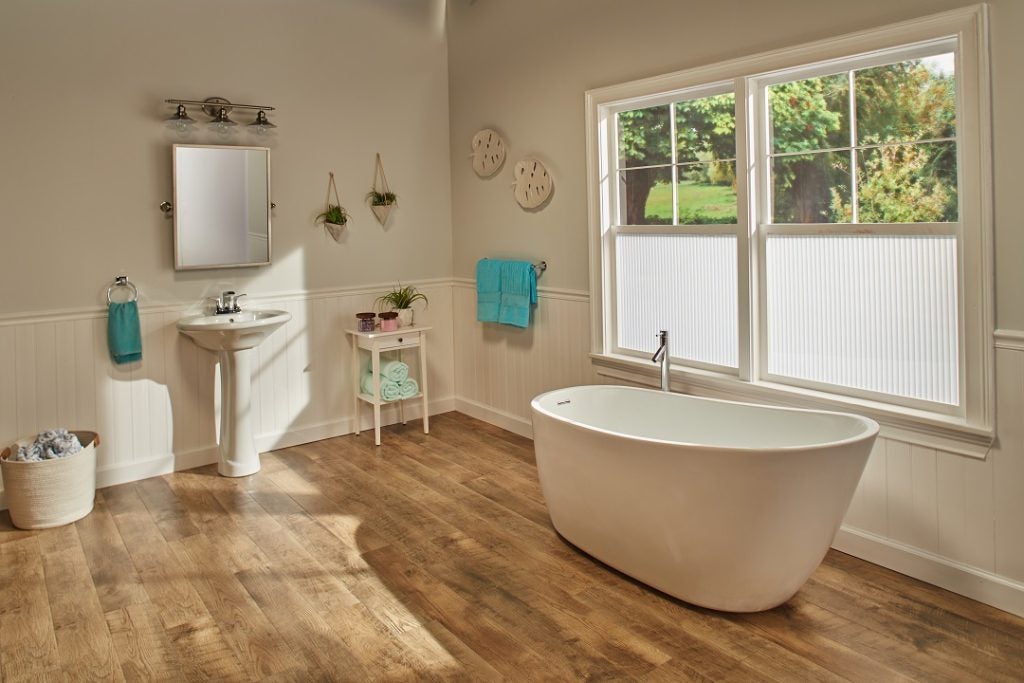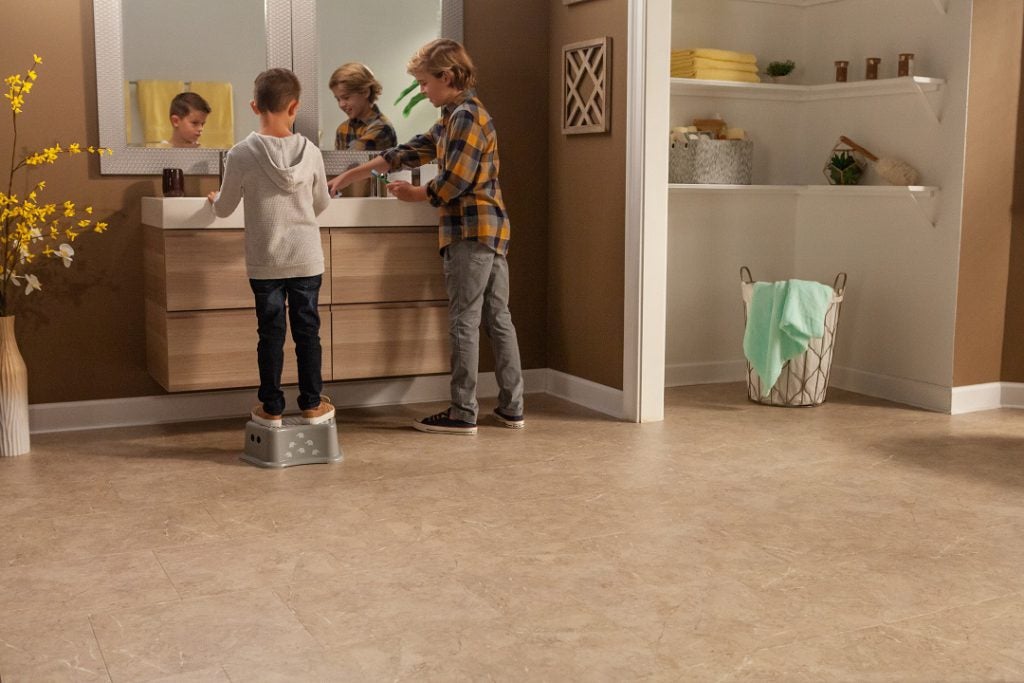One of the main considerations when shopping for new floors is making sure you select a product that is built to endure the specific stresses it will experience in a particular area of your home. For many households, liquids are the number one potential threat. Whether it’s because of a pet who loves playing in puddles, a child whose bath time tends to get a little rowdy, or just the typical spills and splashes that happen in a busy kitchen, errant water can quickly damage many types of floors. If water damage is on your new floor checklist, there’s no better way to mitigate these risks than by having waterproof flooring installed.

After coming to this conclusion, many shoppers will automatically opt for porcelain or ceramic tile. These flooring stalwarts have been the go-to choice for bathrooms and kitchens for ages due mostly to their durability and high level of water resistance. And they are a great fit for these rooms, with a large variety of styles and features to choose from. However, though tile is an incredibly popular choice for moisture-prone areas of the home, it can come with its own set of disadvantages.
The properties that make ceramic or porcelain tile such a durable waterproof flooring option are also the source of its main downsides, and those downsides are especially evident in the rooms where you most want waterproof floors: the bathroom and the kitchen. If you’ve ever stepped barefoot onto a cold tile floor during a middle-of-the-night trip to the bathroom, you know that they can get uncomfortably cold. And while ceramic and porcelain’s incredible material hardness is a huge advantage when it comes to durability, that same asset can become a source of discomfort if you spend a lot of time walking or standing on a tile floor. Many home chefs (or dishwashers!) can relate to that point. Lastly, tile can make a room sound echoey and harshly loud.
Thankfully, there is a type of flooring that solves each of those nits without sacrificing water resistance or style—and it may even fit your budget better. That miracle material? Luxury vinyl flooring. While not a new product, luxury vinyl flooring options have continued to fly under the radar because of their association with the flimsy products many remember from decades past. But today’s luxury vinyl plank and tile are a far cry from the rolled linoleum that graced the floor of Grandpa’s basement.
Thanks to Aqua Defense technology, both luxury vinyl tile (LVT) and luxury vinyl plank (LVP) are fully waterproof flooring products. They offer incredible durability—on par with or better than ceramic or porcelain tiles—with many luxury vinyl products from Empire Today® covered by limited lifetime warranties against wear. But aesthetes need not worry that LVT and LVP are some kind of homely utilitarian flooring materials that prioritize function over form. In fact, the truth is the exact opposite.

Advanced construction methods lend luxury vinyl floors a high-end look and feel that, in many cases, can be nearly indistinguishable from real tile or hardwood floors. The photorealistic surface image accurately recreates the appearance of tile, stone, or hardwood, while the embossed textures convincingly mimic the feel of those materials. Many people don’t realize that LVT and LVP are man-made materials, even when they’re standing right on the floor. And as the product category has continued to grow in popularity, the selection of LVT and LVP available from Empire® has come to offer significantly more style options that traditional tile.
Best of all, as waterproof flooring products, they match tile’s best qualities while avoiding the aforementioned downsides. Though it is a hard surface flooring, there is a small amount of flexibility inherent to the vinyl material, which goes a long way when it comes to underfoot feel. Luxury vinyl flooring will be noticeably more comfortable to walk barefoot or stand on for long periods of time. The synthetic surface will also feel warmer than a tile floor when the temperatures dip. That flexibility also tends to make rooms with vinyl floors a bit quieter than if the same surfaces were covered in porcelain or ceramic tile. Additionally, a variety of underlayment choices can further augment each of these benefits—an option not possible with traditional tile, which needs to be installed on a totally rigid surface to prevent the risk of cracking.
Overall, vinyl products offer perhaps the most comprehensive solution when having waterproof floors is your main goal, but also strongly value style and comfort. If you’ve been debating new floors for your kitchen, bathroom, or anywhere else where water damage is a risk, but aren’t thrilled by the idea of ceramic tile, then luxury vinyl flooring might be exactly what you need.
Get the latest updates delivered to your inbox.